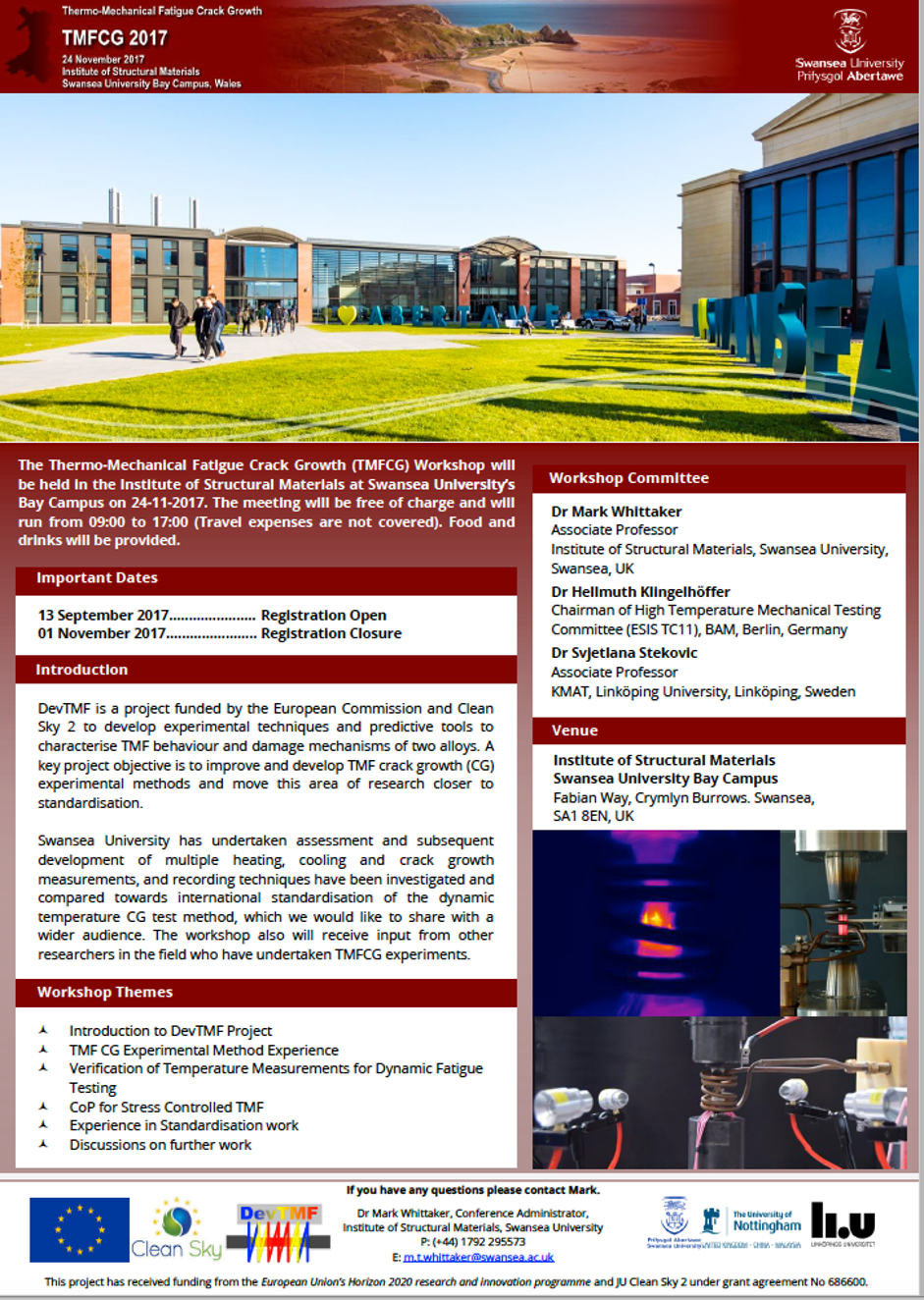Future standardisation activities
Invited talk to the Spring 2021 ASTM Committee E08 on Fatigue and Fracture, The Elevated Temperature Task Group (E08.06.05) meeting on 12th May 2021.
Local Code of Practice for TMF crack growth experimental method
TMF crack growth (CG) methods are essential to demonstrate that structural components meet the certification requirements of being tolerant at handling damage and the presence of anomalies. However, crack growth in TMF loading cycles has not been reliably measured experimentally. In addition, unlike strain controlled TMF crack iniation testing, TMF CG is not yet covered by an international standard or code of practice (CoP).
In 2000, the European Commission made a decision to finance a research project under FP5 (acronym: TMF – Standard), whose aim was to establish guidelines for strain controlled TMF test method. The project was successfully completed in 2005 resulting first in a widely known and appreciated European Validated Code of Practice (https://cordis.europa.eu/project/id/G6RD-CT-2001-00526) and then to the established TMF strain control ISO12111/ASTM E2368-10 standard. Initially TMF CG procedures have been based around the ISO12111/ASTM E2368-10 standard combined with the ASTM E647-13e1 standard test method for isothermal CG measurements, which provide some guidance regarding heating/cooling control methods, specimen design, dynamic temperature tolerances and crack size. However, with no appropriate standard or CoP in place, historically TMF CG test methods have been developed along a number of separate paths without a systematic approach by using a range of experimental techniques for temperature and CG measurements that are strongly dependent on the type of heating and cooling systems applied, specimen design, etc. The open literature reveals only a limited amount of information about TMF CG testing, with isolated publications investigating growth rates under various cycles, by use of a range of the different methodologies described above. Furthermore, most TMF CG tests have been performed under load controlled conditions in order to facilitate the testing procedure for specimens with a crack, which contradicts the ISO12111/ASTM E2368-10 standard testing on smooth specimens, where strain controlled conditions are required.
DevTMF aimed to overcome this distinct lack of coherency through systematic studies (e.g. evaluation of thermal gradients by using different temperature measurements methods, effect of various heating methods, static and dynamic crack tip heating, crack growth measurement methods, etc.) and performing a TMF CG back-to-back testing (round robin) between the partners in the project. The TMF CG round robin testing was successfully accomplished using different specimen geometries and test frames between three laboratories involved in the project. The TMF CG data reveal a good general consistency and reproducibility of the TMF CG rates between the laboratories. The work has been published as a technical note in https://doi.org/10.1016/j.ijfatigue.2020.105675.
The TMF CG round robin and additional testing has formed a base for drafting a local Code of Practice (CoP), which is still on-going. The CoP will be published through the HTMTC. Further standardisation activities will be also supported by the HTMTC.
Internal TMF final workshop, online, 24 January 2021
The aim of the final internal workshop was to present progress, advances and results of the project to Rolls-Royce plc and its subsidiries as part of the dissemination and exploitation activities in WP1.
TMF crack growth course organised by Swansea University, Swansea, Wales, 24 November 2017

